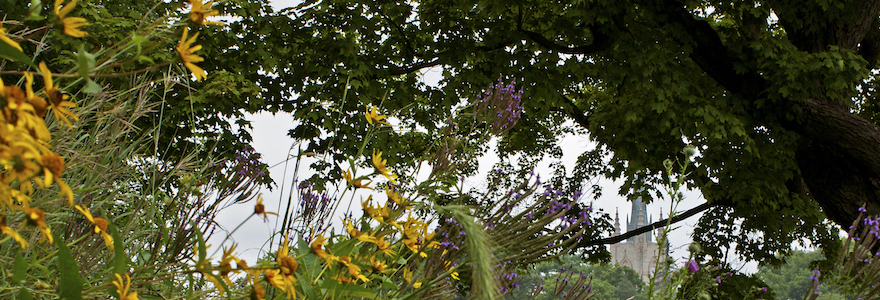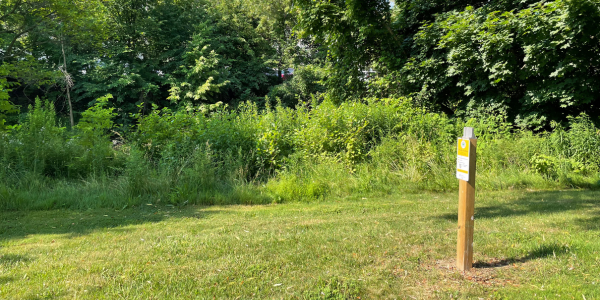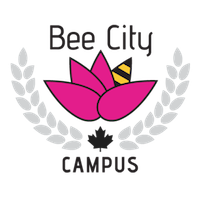Bee Campus

There are over 1,000 species of pollinating insects in Canada. This includes bees, butterflies, moths, flies, beetles, and more! Pollinators are important because they work to maintain the health of ecosystems and support agriculture.
One way we can support pollinators is by planting native plants that provide important resources to pollinators like food and habitat. Many native plants can even be grown in containers to support pollinators on a porch or balcony.
Western was the first university in Canada to become a designated Bee Campus in 2018. This designation recognizes ongoing pollinator work that has been taking place on campus such as:
- Planting native species on campus
- Native plant giveaways
- Educational events and campaigns about native plants and pollinators
- Reduced grass cutting in some areas for wildflowers and grasses to grow
- Maintaining mature pollinator friendly trees
- Naturalizing space behind buildings and along forest
Live Staking for Climate Resiliency, a Campus as a Living Lab project, is a great example of an area that was previously turf grass lawn right up to the banks of Medway Creek. Approximately 200 native plants and shrubs and 75 live stakes were planted in April 2023 to boost the health of the creek and to mitigate flooding in the area. A Chronolog timelapse station was installed in Summer 2025 for visitors to document their observations and watch the site transform over time. This is the first station in London and one of a few in Canada. Those who visit are encouraged to snap a picture at the station and upload it to the timelapse!



